Resources
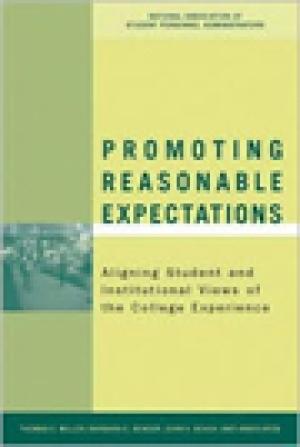
In this important resource, leading figures in the field of student affairs examine the key issue of student expectations of college, then contrast them with the real experiences of students. The book identifies strategies for addressing the disjunctions between expectation and experience. Sponsored by the National Association of Student Personnel Administrators, the book is intended as the starting point for campus discussions and will undoubtedly spark similar conversations across higher education leadership, and perhaps even among parents and students as well. (From the Publisher)
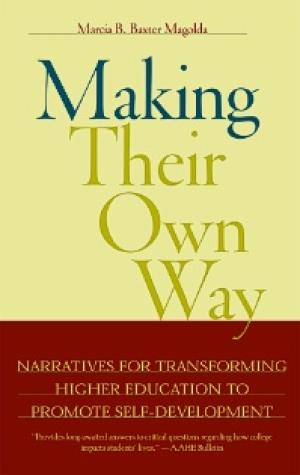
What impact does a college education have on students' careers and personal lives after they graduate? Do they consider themselves well prepared for the complexities, demands and ambiguities of contemporary society? What can we learn from their stories to improve the college learning experience? This ground-breaking book extends a unique longitudinal study of 101 male and female college students started by the author in 1986, and reported in her highly successful and influential book, Knowing and Reasoning in College (1992). This book follows the journeys of the young adults remaining in the study -- drawing on over 300 new interviews -- from graduation to their early thirties. Through the students' own stories, Marcia Baxter Magolda allows us to follow their journeys to an internally-authored sense of identity and belief systems, and in many cases to witness the development of the complex ways of making meaning that are needed for fulfilling participation in modern society. From her observation and analysis, she derives a new framework for higher education to achieve better stewarding and fostering of its students' crucial journeys of transformation. She develops the concept of providing "good company" -- through the shaping of curriculum and co-curriculum, advising, leadership opportunities, campus work settings, collaboration, diversity and community building -- that young adults need along the way to finding and to taking their place as citizens and leaders in the twenty-first century. This is an important book for all teachers and leaders in higher education who are concerned with the holistic development of students, and with higher education's responsibility to foster critical thinking, citizenship and leadership. It has particular relevance for student affairs educators and professionals; as well as for graduate, professional school and continuing education faculty who seek insight into young adult development. (From the Publisher)
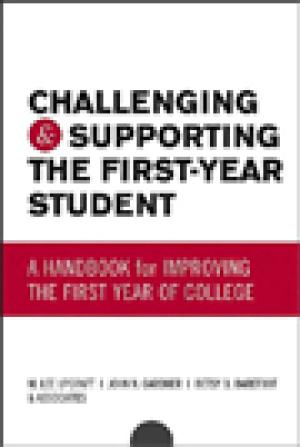
An authoritative, comprehensive guide to the first year of college, Challenging and Supporting the First-Year Student includes the most current information about the policies, strategies, programs, and services designed to help first-year students make a successful transition to college and fulfill their educational and personal goals. (From the Publisher)
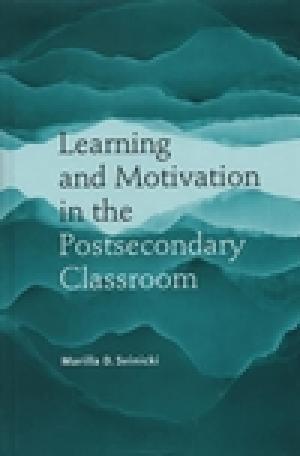
While there is much available research and theory about learning and motivation, until now there has been no resource that translates esoteric findings into everyday language and examples that can be readily applied in college classrooms. This book brings the findings and theories of educational psychology to classroom faculty, helping them to adopt a scholarly approach to understanding their students' learning problems. (From the Publisher)
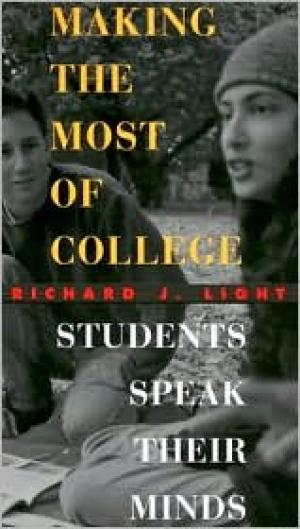
Why Do Some Students make the most of college, while others struggle and look back on years of missed deadlines and missed opportunities? What choices can students make, and what can teachers and university leaders do, to improve more students' experiences and help them achieve the most from their time and money? Most important, how is the increasing diversity on campus -- cultural, racial, and religious -- affecting education? What can students and faculty do to benefit from differences, and even learn from the inevitable moments of misunderstanding and awkwardness? From his ten years of interviews with Harvard seniors, Richard Light distills encouraging -- and surprisingly practical -- answers to fundamental questions. How can you choose classes wisely? What's the best way to study? Why do some professors inspire and others leave you cold? (From the Publisher)

This is an incredible, amusing, horrifying, yet true story, in which all names have been changed to protect the guilty. It tells how the author, a journalist turned college professor, came face to face with Generation X: jaded, un-achieving, highly demanding yet lacking any respect for standards or intelligence. These insouciant scholars wore bored looks, ample attitudes, and reversed baseball caps. They expected to earn top grades by just showing up in class, which they interrupted with their portable TVs, cellular phones, or personal pagers. For his own survival as a teacher, Sacks decided to play a bizarre, cynical game: The Sandbox Experiment, in which he catered to the whims of his students as though they were kindergartners. It worked: Sacks became a great success as a 'teacher', got tenure, and now continues to 'teach' at the strange, appalling institution he calls 'The College'. (From the Publisher)
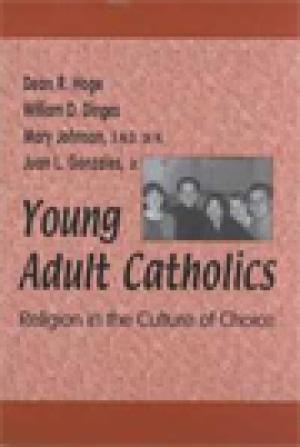
"Leaders of the American Catholic community want to and need to reach out to young adults. But effective ministry to young adults depends on an understanding of the attitudes and the needs of the current generation of Catholics in their 20s and 30s. This is why Dean Hoge, William Dinges, Mary Johnson, and Juan Gonzales began their study of young adult Catholics. How do they actually live their Catholicism? Are they alienated from the church? Are they cynical about the church's moral teachings? Do they take the pope's statements seriously? Do they attend Mass? Have significant numbers left for other churches? Do they want Catholic education for their children?" Seeking answers to these and other questions, the authors conducted a national survey in 1997, supplemented by a telephone survey and then by personal interviews with over 800 men and women across the country. The interviews put a human face on the information provided, and they form a compelling part of this timely narrative. Of special interest is the focus on Latino Catholics. The authors underscore observations that include the strength and tenacity of Catholic identity in spite of many challenges, the high level of personal decision making among those interviewed and surveyed, and the readiness of young Catholics for institutional reforms. (From the Publisher)